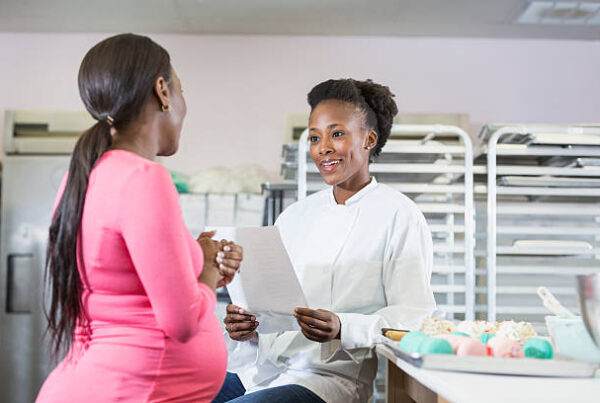Planning to have a baby can be very exciting. It can also be an anxious time. You’re making plans for a huge change in your life. Mental health problems such as anxiety and depression can be common during the waiting period and even in pregnancy.
Staying active can help to boost your mood and lessen your risk of stress and depression.
Getting pregnant and conceiving is a big change for any woman.
A healthy pregnancy requires you to take certain precautions, eat right and refrain from doing certain things. In the same way, engaging in physical activity can help to increase your chances of getting pregnant.
You may think that exercising doesn’t really help improve the odds of getting pregnant. You know that regular exercise and physical activity are encouraged during pregnancy, the same way, exercises can also help you maintain weight, fight off problems which might not be letting you conceive. It can also help your body make the transition needed to carry a healthy pregnancy.
If you’re wondering if it’s safe to exercise when you’re trying to get pregnant, there’s some good news. Starting a workout routine and being active is a big move in the right direction when you’re trying to conceive.
Exercise, plays a huge role in overall health and wellness and can help prepare your body for conception and pregnancy.
Health specialists urge women who are expecting or planning to get pregnant to get more physically active. Why? The reason is simple. Regular workouts get your body in top baby-making shape by toning muscles including your heart, which has to pump up to 50 percent more blood to supply you and your growing baby.
As a booster, exercise reduces stress, which can block the best conception efforts as shown by numerous studies. It also helps you to sleep better.
Working out regularly can help you to maintain a healthy weight, which is important since pregnancy is not the time to try and lose extra kilos — and being overweight or obese during pregnancy can increase the risk of complications like gestational diabetes and preeclampsia.
It’s a good idea to get a fitness routine in place before you get pregnant, so you’ll have an easier time mustering the get-up-and-go when working up the energy is tougher.
But even when motivation is tough to come by, those pregnancy workouts are well worth the effort. Once you do get pregnant, exercise offers loads of benefits, reducing the risk of pregnancy complications and the severity of common pregnancy symptoms like backaches and bloating, all while likely boosting your baby’s brain development and heart health.
Being in shape will even help make delivery go more smoothly, but the question is how much exercise should you aim for when trying to conceive?
Generally for women who are trying to get pregnant, you should aim for a moderate exercise routine of 30 minutes on most days of the week. Remember, three 10-minute sessions count as much as one 30-minute workout.
Aside from the obvious options like aerobic exercise, strength training and yoga, anything that gets your heart pumping, even gardening or housework, is good for your body and future baby.
However, if you’re a seasoned athlete or regularly training for athletic competitions, there is a chance you’re getting too much exercise. Research has shown that five or more hours of high-intensity workouts per week may increase the time it takes to conceive.
Still, that may be because intense training without adequate nutrition depletes your body of essential baby-making nutrients and increases the odds that you’ll weigh in at an underweight body mass index (BMI), which can alter your menstrual cycle and even halt ovulation.
If you’re looking to get pregnant soon but you aren’t sure if your workout routines are too strenuous, let your doctor weigh in on your routine.
Your doctor may also possibly hook you up with a nutritionist to make sure you’re getting the nutrition you need.
If you’re actively trying to get pregnant, sperm and egg can meet at any time, making you officially pregnant even if you haven’t gotten the happy confirmation from a pregnancy test.
That’s why you’re safest sticking with workouts that get the green light for the expecting set.
Keep in mind, it’s always a good idea to get your doctor’s green light on your workouts. Once you get the go-ahead, be sure to listen to your body, rest when you need to, and drink plenty of water. When you do become pregnant, certain exercises are off-limits, although you will be able to go back to your pre-pregnancy exercise routine after you deliver.
Exercise/being active can boost your fertility (the ability to get pregnant). Women who do regular, moderate exercise get pregnant quicker than women who don’t exercise regularly.
It doesn’t have to be an exercise class in the gym, it means any activity that will raise your heart rate, make you breathe faster or make you feel warmer.
There are specific exercises that are considered safe when you’re trying to conceive. Walking and running are excellent cardiovascular workouts, especially since you don’t need any special equipment.
Walking is safe and recommended if you are trying to conceive right up to delivery day. Needless to say, walking is one of the safest and easiest ways to stay healthy and fitter for any individual.
When you are in the early stages of conceiving or thinking about getting pregnant, just increasing your physical activity and going on regular walks could multiply your chances of pregnancy.
Weight lifting builds muscle tone and bone strength — both of which will help keep you in top shape while anticipating pregnancy.
To avoid risking injury, opt for lighter weights with more repetitions or focus on resistance exercises that use your own body weight or bands, like lunges, squats, crunches and push-ups.
Barre, yoga and Pilates are ideal exercises if you’re trying to get pregnant, since they build strength, balance, endurance and muscle tone — all things that will help your conception efforts. Yoga, in particular, is designed to help you relax, which is especially important when you’re trying to conceive.
But yoga injuries are common, and they can derail your baby-making efforts, so it’s smart to seek out the guidance of a teacher who can help you pinpoint your body’s limits.





